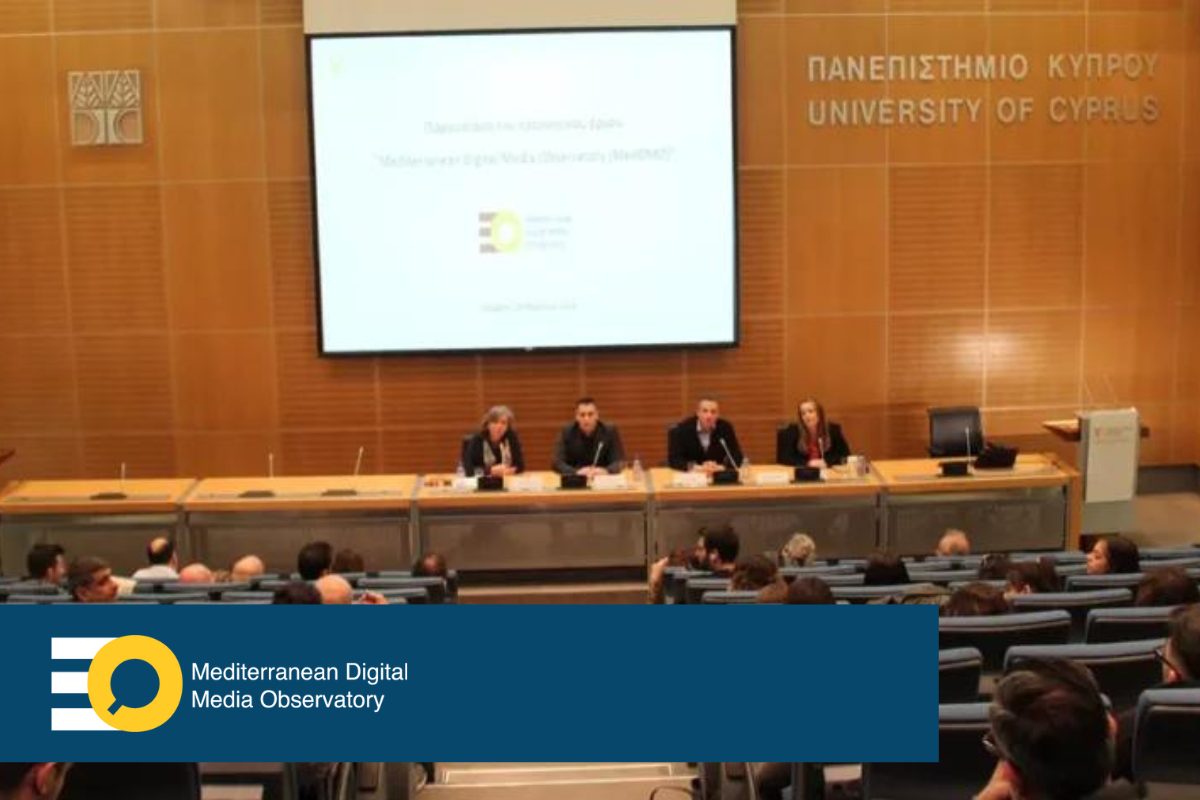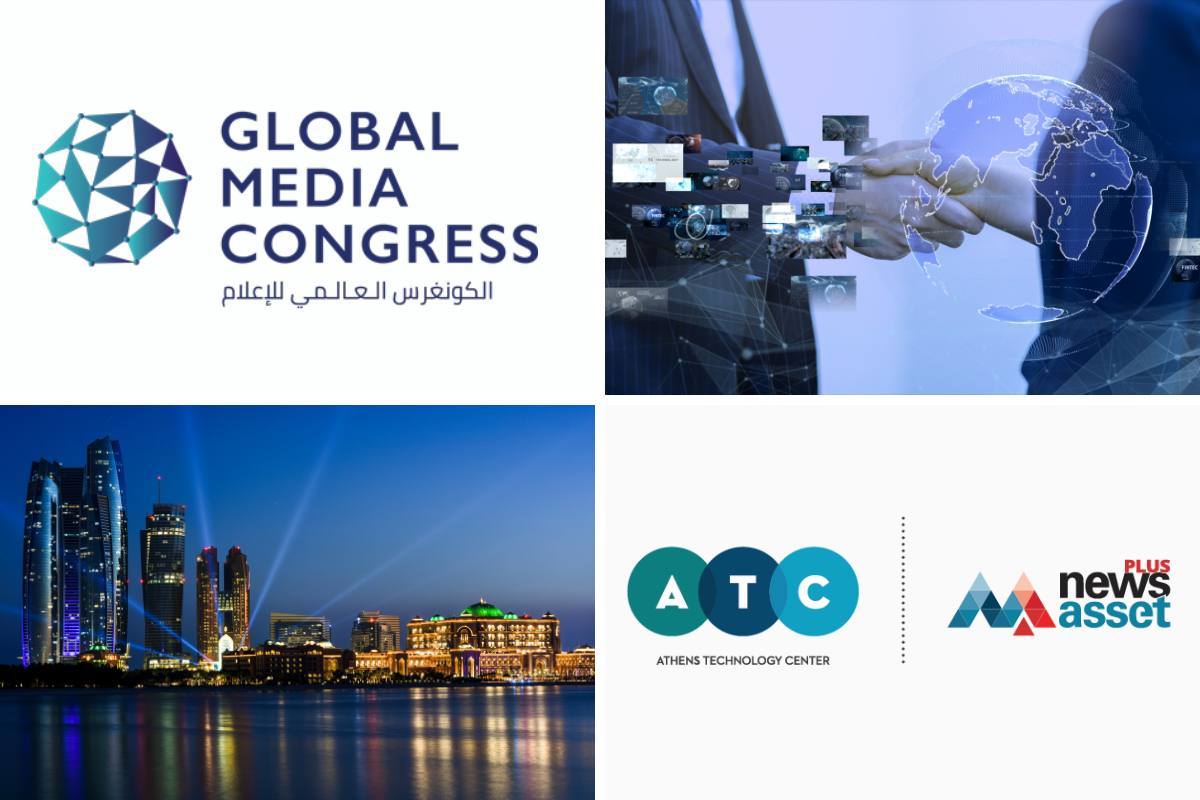On March 29th and 30th, the University of Cyprus held a press conference upon the activities of the Mediterranean Digital Media Observatory (MedDMO). The attendees had the chance to deep dive into the Observatory’s aspirations and recent milestones.
During the meeting, representatives of the institutions and companies that make up the Mediterranean Digital Media Observatory, which was established to develop tools and promote actions against disinformation, got together and addressed an academic and journalistic audience, presenting the Observatory’s new website and unfolded its three-year goals.
Dr. Nikos Sarris, as lead coordinator of the research project on behalf of the National Center for CERTH, gave a historical review of European efforts to limit disinformation.
“MedDMO is a continuation of the effort launched by the European Commission in 2018 with the creation of a network experts, while two years later this work was transferred to the EDMO, which is the central instrument of the relevant actions at the European level.”
Dr. Nikos Sarris, National Center for CERTH
Mr. Sarris clarified that MedDMO belongs to the group of regional observatories within EDMO, covering Greece, Cyprus and Malta. As a central goal, he emphasized, MedDMO wants to bring together all the relevant forces that can contribute to effectively fact check the published news.
At the same time, he added that a wider awareness of citizens regarding the phenomena of disinformation will be sought, through the digital literacy actions that will be undertaken.
From his side, Athens Technology Center’s Fact Checking Platforms Manager and journalist, Christos Gavalas, presented the MedDMO website, which includes the results in English and Greek of the verification of news about events in the three countries under coverage, with the participation of Ellinika Hoaxes (Greece), Times of Malta (Malta) and Agence France-Presse (Cyprus).
Describing the functionalities of the page, he explained that it includes the most important parts of the research of the observatory’s academic partners, but also a section with actions related to digital literacy. The goal is for society as a whole to be able to more easily recognize irregularities on the web, noted Mr. Gavalas.
Furthermore, Mrs. Joyce Zablit, the AFP coordinator for the fact checking of published news projects in Europe, spoke in more detail about the agency’s methodology regarding fact checking. She pointed out that the AFP fact checks news related to rumors, hoaxes, widely circulated misrepresentations, fake images, out-of-reference videos and various types of misinformation from third-party websites. Within this spectrum, she mentioned that the top themes for 2022 were the war in Ukraine and Covid19.
At the same time, she also pointed out the importance of the European Fact Checking Standards Network (EFCSN), which acts as an umbrella organization for all fact checking organizations in Europe. Almost fifty of EFCSN members worked on a draft a code of practice, which can serve as a base on how institutions can be approved as a legitimate fact-checking organization.





